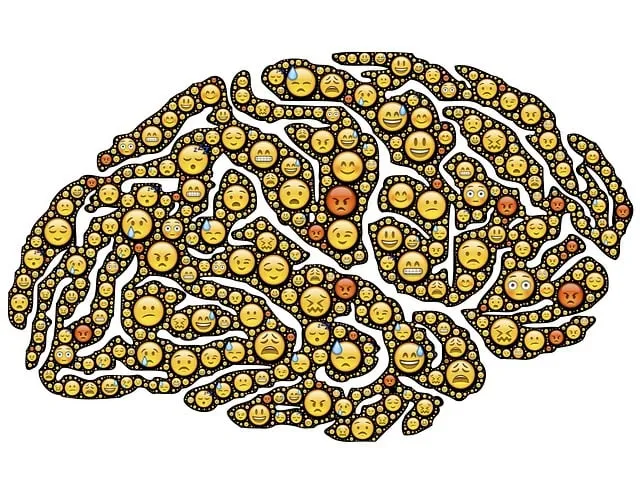The text highlights the significant impact of stigma on individuals with mental health conditions, hindering access to essential care. It emphasizes that negative attitudes and discrimination push people into isolation. Research from the Littleton Kaiser Permanente psychiatry reviews reveals fear of judgment as a major barrier to treatment-seeking behavior. To combat this, public awareness campaigns and educational strategies are vital, encouraging early intervention and normalizing conversations about mental health. Healthcare providers, including those at Littleton Kaiser Permanente, play a crucial role through Mental Health Awareness Programs, empathetic interactions, podcasts, and workshops, fostering an inclusive environment. Systemic changes, policy reforms, and community engagement, as evidenced by positive Littleton Kaiser Permanente psychiatry reviews, are essential to reducing stigma and ensuring equal access to mental health services.
In the pursuit of better mental health outcomes, stigma reduction efforts play a pivotal role. This article explores various strategies aimed at mitigating the societal and self-stigma associated with mental illness, drawing insights from psychiatric perspectives at Littleton Kaiser Permanente. We delve into its impact on care-seeking behaviors and highlight the crucial roles of healthcare providers, community engagement, education, and policy advocacy. By understanding stigma’s far-reaching effects, we can foster an environment conducive to early intervention and improved mental health services.
- Understanding Stigma: Its Impact on Mental Health Care Seeking
- The Role of Healthcare Providers in Reducing Stigma
- Community Engagement and Education Strategies
- Policy Changes and Advocacy for Mental Illness Equality
Understanding Stigma: Its Impact on Mental Health Care Seeking

Stigma surrounding mental illness is a significant barrier to individuals seeking necessary healthcare. It often manifests as negative attitudes and beliefs about people with mental health conditions, leading to discrimination and isolation. This can deter those in need from reaching out for support, potentially exacerbating their symptoms and hindering recovery. For instance, research from Littleton Kaiser Permanente psychiatry reviews highlights that the fear of judgment significantly influences a patient’s decision to seek treatment.
Public Awareness Campaigns Development and Communication Strategies play a pivotal role in countering this stigma. By educating communities about mental health, these initiatives foster understanding and empathy. Self-Awareness Exercises can also empower individuals to recognize and challenge their own preconceived notions, creating a more supportive environment for those struggling with mental illness. Through such efforts, the goal is to normalize conversations around mental health, encouraging early intervention and improved treatment outcomes.
The Role of Healthcare Providers in Reducing Stigma

Healthcare providers play a pivotal role in reducing the stigma surrounding mental illness. By integrating Mental Health Awareness and Education Programs Design into their practices, psychiatrists like those at Littleton Kaiser Permanente can foster an environment of understanding and compassion. These professionals are on the front line, interacting directly with individuals seeking help, and their attitude and communication significantly shape public perception.
Through thoughtfully crafted mental wellness podcast series production, healthcare providers can share valuable insights, dispel myths, and showcase diverse recovery stories. Such initiatives not only enhance mental health education but also contribute to a more inclusive society where mental illness is treated with the same empathy as physical ailments. Positive experiences with healthcare providers can encourage open conversations about mental wellness, ultimately reducing stigma at both individual and community levels.
Community Engagement and Education Strategies

Community engagement and education are powerful tools in the fight against mental illness stigma. Organizations like Littleton Kaiser Permanente psychiatry clinics play a vital role by providing platforms for open discussions and raising awareness through various programs. These initiatives often involve hosting workshops, seminars, and community events focused on mental health topics. For instance, introducing topics such as mindfulness meditation can help individuals understand the benefits of self-care practices in managing stress and promoting overall well-being.
Additionally, healthcare provider cultural competency training and social skills training are essential components of these strategies. By educating medical professionals about different cultural perspectives and effective communication techniques, they can better cater to diverse patient populations. This approach ensures that individuals from all backgrounds feel comfortable seeking help without fear of judgment or miscommunication, fostering a more inclusive mental health care environment.
Policy Changes and Advocacy for Mental Illness Equality

Mental illness stigma reduction requires systemic changes and advocacy for equality. Policy reforms are crucial to dismantling discriminatory practices and ensuring equitable access to mental health services. Organizations like Littleton Kaiser Permanente can play a pivotal role in this regard, offering comprehensive psychiatry reviews that highlight best practices and areas for improvement. These reviews not only contribute to the body of knowledge but also guide policy changes that promote compassionate cultivation practices.
Advocacy efforts must focus on raising awareness, challenging stereotypes, and implementing community outreach programs. Crisis intervention guidance is essential in these initiatives, ensuring that individuals facing mental health crises receive timely and effective support. By fostering open dialogues and providing resources, communities can create a more inclusive environment where mental illness is understood and treated with the same compassion and care as physical health conditions.
Mental illness stigma reduction is a multifaceted effort that requires the involvement of healthcare providers, community engagement, education strategies, and policy changes. By fostering understanding and empathy through comprehensive education, we can create an environment where individuals feel comfortable seeking mental health care without fear of judgment. Initiatives like those highlighted in Littleton Kaiser Permanente psychiatry reviews demonstrate the potential for positive change, emphasizing the importance of integrating stigma reduction into healthcare practices and community initiatives to achieve true equality in mental health support.






